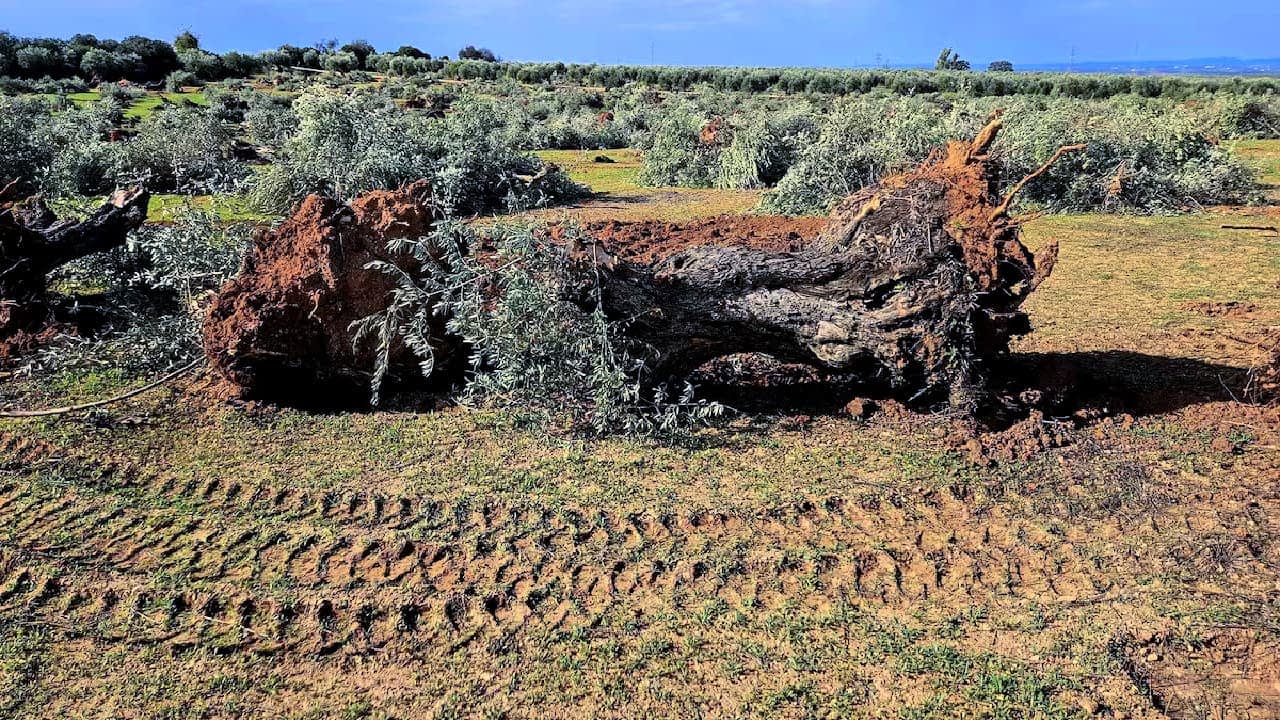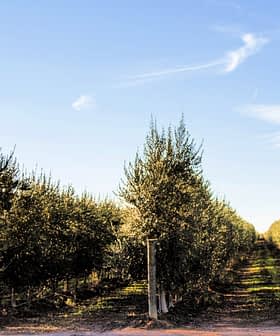In Andalusia, Activists Fight to Save Centuries-Old Olive Trees from Solar Plants

After the Andalusian regional government approved the installation of 25 mega-solar plants on olive groves, activists have gathered over 56,000 signatures to stop the development, citing concerns about the removal of centuries-old trees and the environmental impact. The government has defended the initiative, stating that the expansion of renewable energy has not come at the expense of olive growing, and disputed campaigners’ claims about the number of trees that would be removed to make way for the solar plants.
After the Andalusian regional government approved the installation of 25 mega-solar plants on 5,500 hectares of olive groves, activists gathered more than 56,000 signatures to stop the development.
The initiative, part of the Andalusian government’s energy transition policy, would involve cutting down about 500,000 centuries-old trees in the provinces of Jaén and Córdoba.
While Andalusian president Juan Manuel Moreno said regional officials would plant 1.5 million new trees across 2,500 hectares, activists and researchers said this figure would cover less than six percent of the carbon dioxide sequestered by the centenarian trees annually.
See Also:Researchers Investigate Solar Panel and Olive Grove SynergiesResearch from the Aquae Foundation shows that young olive trees sequester 10 to 30 kilograms of carbon dioxide annually. Separate data from the University of Jaén estimates that centenarian trees absorb about 570 kilograms of carbon dioxide yearly.
As a result, activists from SOS Rural and Campiña Norte Against Solar Megaplants, the groups that collected the signatures, estimated that the government would need to plant almost 30 million new trees to offset the emissions that these trees would no longer absorb.
The protest comes after Campiña Norte Against Solar Megaplants filed a criminal complaint against Greenalia and FRV Arroyadas, two companies developing solar plants, in January. The case is proceeding through the courts.
“It’s contradictory to talk about decarbonization while destroying centuries-old trees, which are the largest natural carbon sinks we have,” Natalia Corbalán, national spokesperson for SOS Rural, told local media.
Campaigners also highlighted the social impact of replacing the olive groves with solar plants, including the loss of traditional jobs harvesting the trees without any obvious replacements.
See Also:Proposal Would Ban Solar Panel Installation on Italy’s FarmlandsCampaigners in Lopera allege that a new solar plant covering about 425 hectares would require the removal of 42,000 olive trees.
A report by the La Loperana cooperative estimated that this would result in the loss of about two million kilograms of olives each harvest, which could produce about 400,000 liters of olive oil.
The cooperative calculated that it would lose about €3.1 million in wages and olive oil sales, representing about 25 percent of Lopera’s economy.
The campaigners also alleged that some landowners were forced to lease in unfavorable conditions because the government labeled the projects as public utilities, which allowed them to pursue expropriation proceedings against holdouts.
However, Jorge Paradela, the regional government’s minister of industry, energy and mines, called campaigners’ claims “mistaken and distorted.”
He told Canal Sur Radio that the expansion of renewable energy in Jaén has not come at the expense of the expansion of olive growing.
“In the province of Jaén, there are 4,000 more hectares of olive groves today than there were five years ago,” he said.
Paradela also disputed the campaigners’ estimate about the number of trees removed in the Lópera to make way for the solar plant, indicating it would be closer to 13,000.







